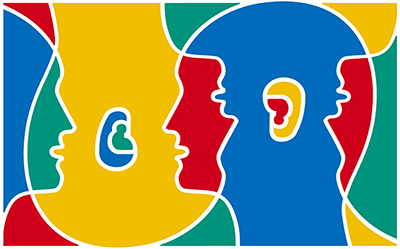
Source:https: //pickwriters.com/ ec.europa.eu
The beauty of living in a multicultural country does not stop only at the variety of food we have, we also have a beautiful mixture of culture and languages. Yet, not many of us feel the need to learn other languages given that almost everyone we encounter are able to speak either Malay or English. I have always had a thing for languages – I believe they enrich you as a person because with it, comes along the culture and belief system of that particular language. I was interested to learn Tamil and Cantonese or Hokkien – the other commonly spoken language in Malaysia. I picked up some vocabulary here and there, from TV shows and even from asking people around me, but I always put off learning seriously because it had never occurred to me that learning these languages will become a necessity.
Until I started my elective posting in Malaysia, I realized that I need to pick up the languages. As human being, our mother tongue is the closest to our heart, and we will be more comfortable speaking in this language. I learnt that being able to communicate with patients in their mother tongue makes them feel more at ease and perhaps to some extent enable us to get a more accurate history. I have also missed a few discussions that happened in languages I could not understand – something I have experienced during the early days of my clinical years and was able to overcome by learning the colloquial Arabic.
One might ask how do you learn a new language at this stage of our life? Easy, the answer is the same for any languages, at any point of our life; by listening and speaking the language. The essence of communication is being able to convey and receive a message which is done mostly through speaking and listening. I am lucky I have the experience of learning colloquial Arabic and I believe the same technique will work to learn any other languages for our clinical practice.
Have a list of vocabulary
Make a list of questions you were to ask patients when you clerk them and then have the list translated into the language you intend to learn. Ask a friend who speaks the language to help you with the translation. Then, set another list of answers you expect from the questions and have that translated too.
Obtain the language’s system
Every language has its own system and getting the hold of it will make learning the language easier. Learn how to build a sentence, how to use the prefixes and suffixes, and maybe some grammar. Some languages have different ways of saying things depending on the gender of the person you are addressing.
Listen, listen and LISTEN
Listen to the people around you, as they speak to get the right way to pronounce the words and also by time, you will get what to say, when and where. Language is not just about the vocabulary you have but also the proper way to use them.
Articulate and converse
Now that you know how to say it, practice it. There is no shortcut to learn a language, practice is the key to mastering a language. Say the words out loud when you are alone or have a friend to listen to your pronunciation. Start conversing with whatever limited vocab you have and be prepared to make mistakes and learn from them. At this point, you can test your language command by seeing if people could understand what you are saying, and if are you able to understand what people are saying to you.
Ask!
You will encounter words you do not know and you could write it down and ask people what it means. Languages also come with idioms and proverbs – this you could only learn by asking questions about them.
For me, learning other languages is not necessarily a requirement to be a doctor; it is just about going the extra mile for something you are passionate about. I hope this helps you master whatever languages you have to or want to master.
This article is written by Nurul Atiqah, who recently graduated from Jordan University of Science and Technology. Click the Young Columnists tab under The Team to know about her.
